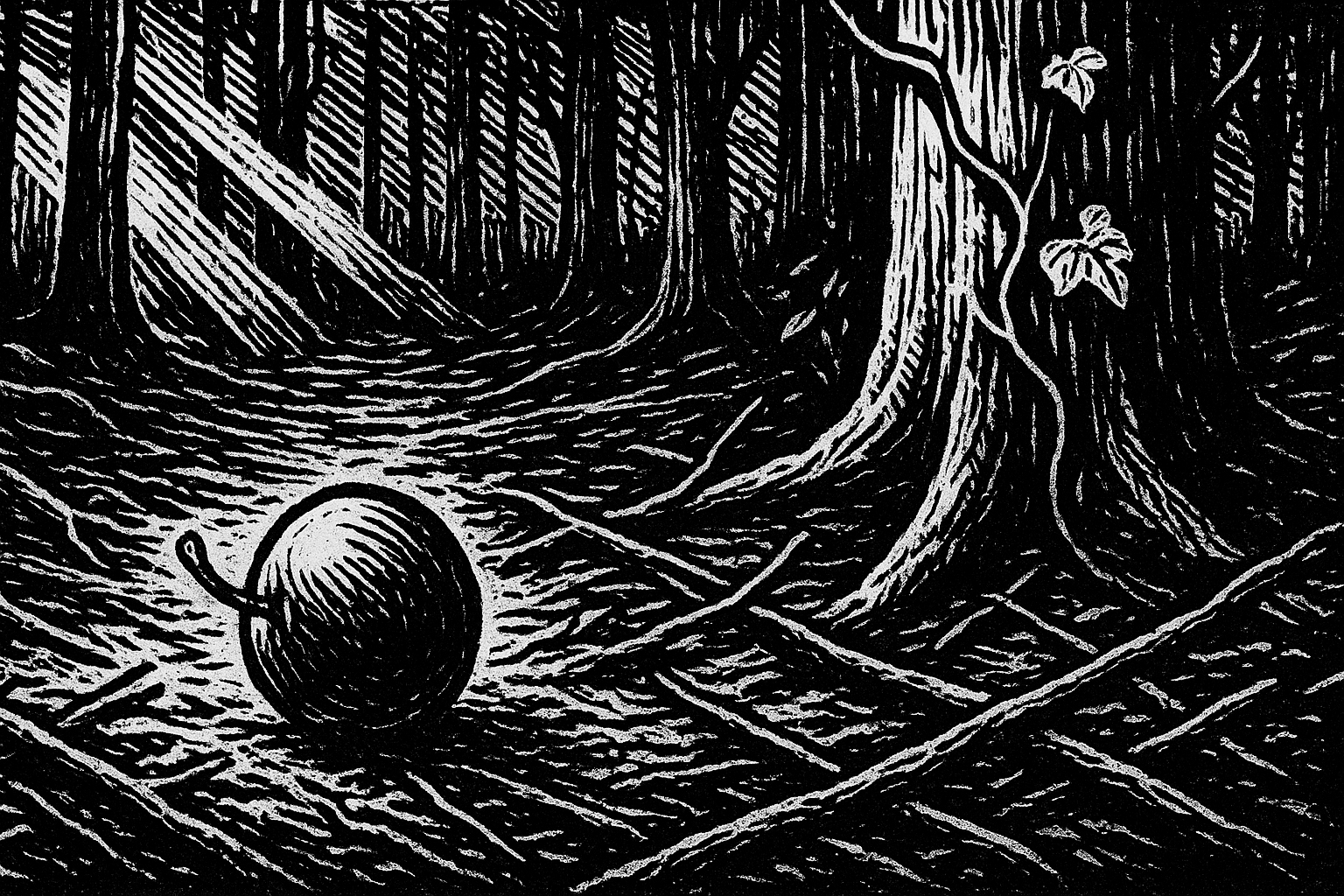Be The Grape
A grape drops onto the forest floor. No fanfare. No sunlight. No one cheering it on.
But that grape doesn't wait for perfect conditions. It does what it's designed to do. It roots. It climbs. Slowly. Quietly. Relentlessly.
Years later, it's no longer invisible. That vine has risen through the trees. It's wrapped itself around trunks and branches. It's above the canopy now, stronger than the giants that once cast shadows over it.
You are that grape.
Okay, you're not literally a grape. You do not photosynthesize. You are not welcome in most vineyards without permission. But if you’ve ever tried to build something with patience and consistency, then yes, you are the grape.
Because what the grape understands, and what most people forget, is compounding.
And compounding is not about doing more. It's about doing the right kind of work, long enough, in the right kind of place, without starting over.
That’s it. That’s the whole trick. But it’s harder than it sounds.
Compounding is when effort starts to generate more than its fair share of results. It's not linear. It doesn’t reward intensity. It rewards alignment and consistency. Compounding is what happens when today's effort makes tomorrow's effort more effective. Not easier necessarily, but more potent.
It’s the flywheel. It’s the vineyard. It’s the writing habit that builds an audience. The relationship that gets stronger with each honest conversation. The business that stops scrambling and starts reusing its own momentum. You know it when you feel it. You stop pushing. You start rolling.
At first, compounding looks like nothing. That’s the test. It looks like showing up to the gym with no visible change. It looks like publishing when nobody's reading. It looks like having one real conversation with your kid that doesn’t magically fix everything.
Compounding is boring in the beginning. And that’s why most people bail. They think they’re doing it wrong. They’re not. They’re just early.
For compounding to take hold, you need three ingredients. A skill or habit that gains value with repetition. A setting that remembers what you put into it. A mindset that doesn’t panic when nothing happens right away.
You don’t need to be brilliant. You don’t need to be fast. But you do need to hold your direction long enough for the curve to bend.
That’s what the grape does. It climbs the same direction every day. It doesn’t double back and start over. It just adds.
And that’s what you need too.
What kills compounding is not failure. It’s interruption. Starting over kills it. Impatience kills it. Chasing applause kills it. Thinking you’re behind kills it. Overengineering your system and then abandoning it kills it.
Sometimes even good decisions kill it. Like upgrading to a better opportunity that resets your progress. Or quitting something that felt slow, but was actually just building traction in silence.
If you're constantly replanting, nothing roots.
Grapevines are one of the best examples of compounding in nature. They get better with age, not worse. The early years? Mostly invisible. The best fruit? Often comes from older vines with deeper roots and lower yield. The less they chase volume, the more they gain complexity.
Beavers compound too. One dam reshapes the landscape. Then another. Over time, ponds form, vegetation shifts, and entire ecosystems bend around their work.
Ants build networks. Bees build hives. Coral builds reefs. None of them move fast. They just never go back to zero.
Nature is full of compounding. So is your life. You just have to stop interrupting it.
We see the same thing in people. Warren Buffett is the obvious one. Not because he's clever, but because he let time do the hard part. Jerry Seinfeld writes every day. Not because every joke is good, but because the habit is. MrBeast started posting videos at age 11. He learned thumbnails, then pacing, then storytelling. Now it looks like magic. It wasn’t. It was stack.
Stephen King writes daily. Not because he feels inspired, but because books don’t finish themselves. Costco doesn’t market. It compounds trust. One good experience becomes a reason to come back. The more people come back, the stronger the model gets.
Most natural compounders don’t know they are. They just stick with things that matter, in ways that are sustainable, without needing immediate payoff. They make fewer dramatic moves and more consistent ones. They don’t switch lanes every season. They build systems that reduce friction. And they can keep going even when no one is clapping.
They get more done, not because they try harder, but because their previous effort never gets erased.
They are the grape.
You don’t always need to find a compounder. Sometimes, you can build one. You build it by creating structure. By doing one thing well and doing it often. By stopping the cycle of reset. A compounder isn’t just a lucky situation. It’s a system you install. If your current setting doesn’t let progress stick, maybe the first thing you compound is a better one.
You don’t need to be fast. You don’t need to be flashy. You just need to be facing the right direction and willing to keep climbing.
Not everything pays off in thirty days. Most of the good things don’t.
Grapes know this.
Be the grape.
This post was adapted from a presentation I gave to my adult children in 2025.
Here’s a link into my research on compounders and compounding.
